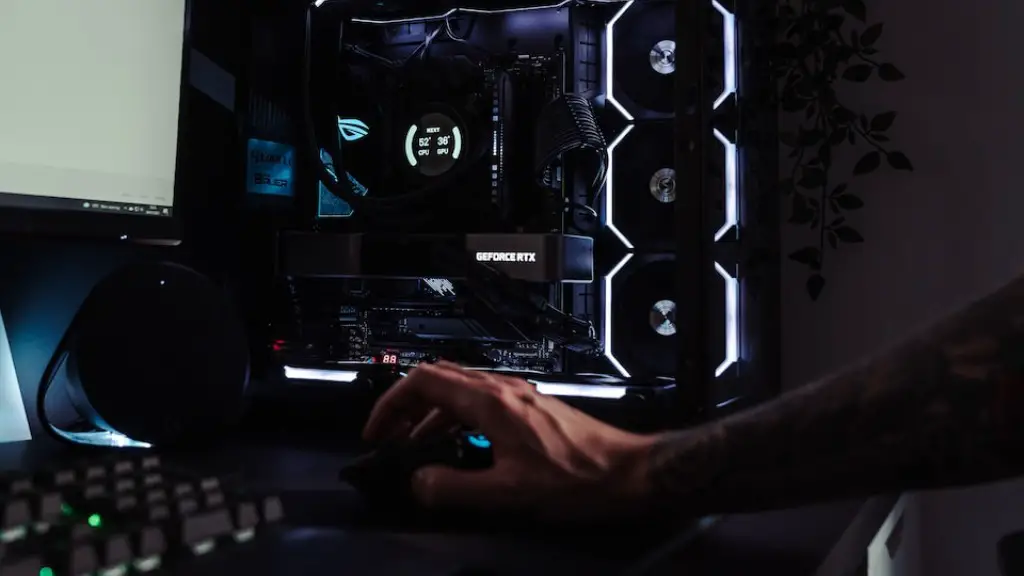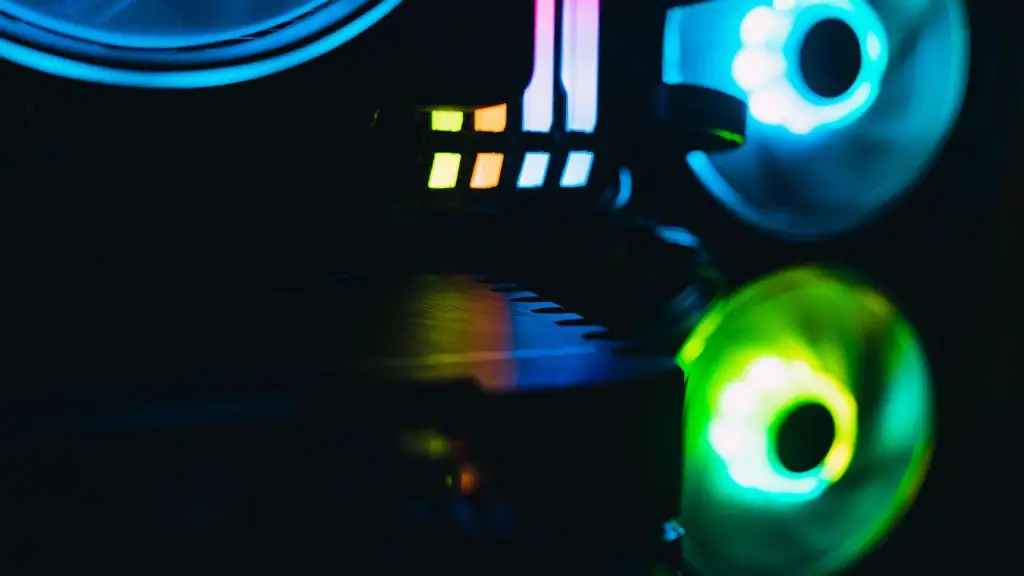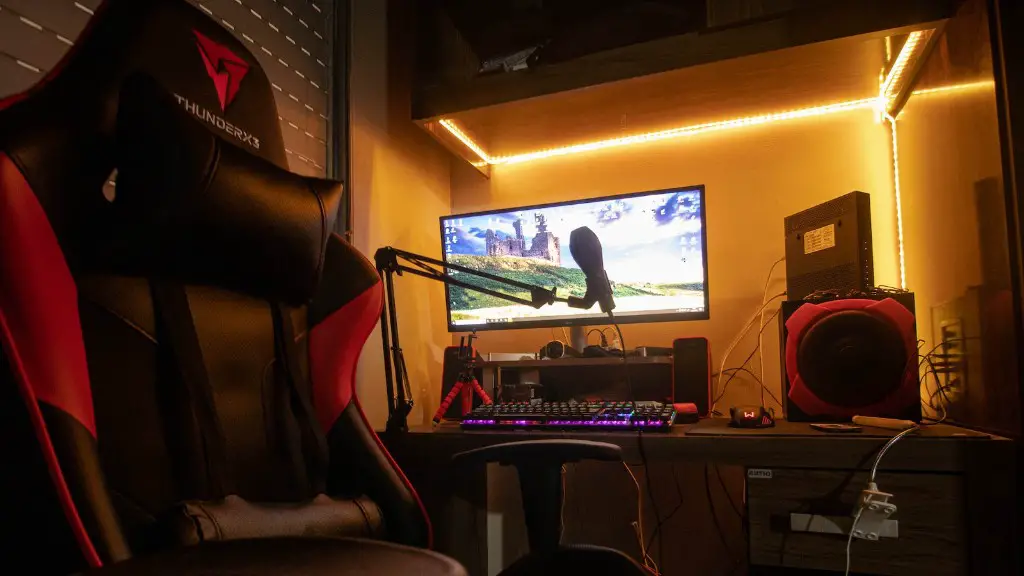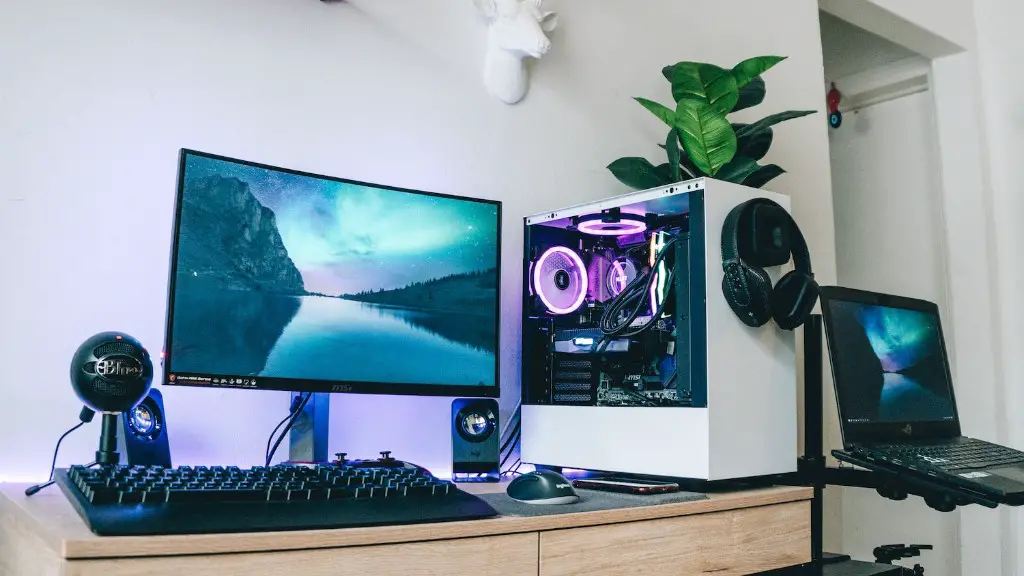If you’re an aspiring PC gamer, you may already have some idea of where to start in building a gaming PC. But, for those of who don’t know where to start, let’s begin by looking at the basics. Firstly, decide on your budget. Whether you’re looking to build your first gaming rig on a budget or splurge on a high-end machine, it is important to start with a budget in mind. This will help you make better decisions when it comes to buying computer components. Knowing the total budget before you start shopping will also help make sure you don’t end up overspending.
Next, decide on what specifications you need. Gaming PCs can vary significantly depending on the types of games you’ll be playing as well as the resolution of your monitor. Consider what type of graphics card you will need and how much RAM you’ll require. If you are unfamiliar with these components, researching and speaking to someone who has more experience with building PCs can be beneficial.
Once you have determined the technical specifications of the PC you are building, it is time to purchase the parts. Before you reach for your wallet, check out as many online and in-store reviews as possible to ensure you’re getting the best value for your money. It is important to double-check compatibility, prices, and customer service of the store you are purchasing from. While it might be tempting to go for the cheapest option, don’t forget that the costs of buying a good quality product can often be worth it in the long run.
Once you have purchased all the components you’ll need to build your gaming PC, you will likely want some help in putting all the pieces together. If you don’t have any experience with building and installing computer parts, it’s a good idea to enlist the help of someone who does. Otherwise, you can also find tutorials online which will help you with the process. It is important to take your time when building the PC, as rushing things can potentially lead to errors which can be costly to fix.
Finally, even when your rig is up and running, remember that you might need to tweak some settings and do regular maintenance in order to keep your PC in top shape. Updating your graphics card drivers can be essential for optimal performance. And it’s always best to have a backup plan in the event that something goes wrong.
What Components Do I Need?
Debating over what components to buy is a critical step when building a gaming PC. Depending on the type of games you want to play, some components will be more important than others. At the very least, you’re going to need a case to house all the internal parts, a motherboard and a processor, RAM, a graphics card, a power supply unit and storage either in the form of a hard drive or an SSD. You will also need to consider additional peripherals such as a monitor, speaker, mouse, and keyboard.
A powerful graphics card is essential for any good gaming rig. Your choice of graphics card will likely depend on the type of games you want to play. If you are playing graphically-intensive games, you will need a high-end graphics card. Consider how much memory you will need for the games you want to play. Most modern games require at least 4GB of RAM, but some games might require more.
Before selecting a processor, make sure it is compatible with the motherboard you are using. When it comes to storage, you have choices between HDD and SSD. Hard drives are usually cheaper and can store more data but they are also slower. Whereas solid-state drives (SSD) are more expensive but offer quicker loading times. For best performance, you can opt for a combination of both.
When searching for a power supply, know that price doesn’t always reflect quality. Research wattage levels of your components and add up the total amount of power they will require. It is better to buy a more powerful PSU than a weaker one, as it will be more reliable and generate less heat. Generally speaking, a good power supply will last longer and keep your gaming PC well-protected.
How Much is it Going to Cost?
The cost of building a gaming PC can vary depending on the components you choose and how powerful you want the PC to be. Generally, the price of building a decent mid-range gaming PC can range from $400-750 USD. While it might be tempting to buy cheaper components, it’s important to remember that the quality of these components might not be as good and can cause the PC to malfunction more easily.
It’s also important to consider the cost of upgrading components in the future. If you plan on playing games beyond that requirement, you need to factor in the cost of upgrading components such as the graphics card or processor. This will help you budget for the overall cost of the gaming rig now and in the future.
While it can be hard to predict the exact cost of a gaming PC ahead of time, there are tools available online that can help you estimate the cost. You can check out some pre-made builds from performance-oriented websites such as PC Part Picker, which will give you a rough idea of how much you would need to spend. Just remember that the estimated value of the build is only an approximation.
Should I Choose to Customize or Go Pre-Built?
When considering your options on where to start with building a gaming PC, the question inevitably arises whether to go for a pre-built machine or to customize your own. Pre-built gaming PCs have their advantages as they are tested and ready to use right out of the box but they can be more expensive than customizing your own. If you are unsure about how to select the right parts or you don’t want to take the time to build and test your own PC, then a pre-built machine could be an ideal choice.
On the other hand, building your own gaming PC from scratch allows you to pick out the exact parts and upgrade your setup as you go. But it also requires more knowledge of the components, their compatibility with each other, and the installation process. Customization also offers more opportunities for greater savings. When customizing, you can pick out components piece-by-piece to fit within your budget and you have more control over your upgrade path as well as the overall performance.
When weighing your options, it also important to consider what type of games you’ll be playing and if they are demanding. If so, you may need to invest more money in higher-end components in order to experience better performance. In the end, it really comes down to your own preferences and what you want out of your gaming PC.
Putting it All Together
Getting to the point of actually putting all the components together is the most important stage of assembling any gaming PC. Before you start, make sure you are well prepared by gathering all the necessary tools beforehand and having plenty of workspace. There is nothing worse than having to stop in the middle of building your rig to find something that you need. The installation process can be daunting at first, but just remember to go slow and follow the instructions carefully – it can help to look at tutorials online.
To begin, place the motherboard onto the mounting stand-offs and fix it into place with screws. Ensure that the ports are all lined up properly with the back plate before doing so. Once the motherboard is fitted in, you can begin to install the CPU, RAM, and other components such as the graphics card and storage devices. Ensure that all the components are correctly seated and that they are receiving power. Finally, attach the cables – make sure to connect all the power and data cables to the right ports. It is important to double-check that all components are connected properly.
Once you have installed all the components, you can start up the gaming PC for the first time. Go through the setup process and make sure everything is working properly. Once the setup is complete, install the latest graphics drivers and test out your rig to make sure it performs to your expectations. If you have done everything correctly, you should now have a fully-functional gaming PC.
Optimization and Troubleshooting
Even after putting your PC together and testing it out, it is important to keep up with regular maintenance and troubleshooting. If you are having performance issues or your GPU driver isn’t updating properly, these can be signs of problems. Even the most powerful gaming systems need occasional optimization, so it is good practice to make sure everything is running smoothly.
Common issues such as failing cooling fans, clogged air filters, and bad RAM can cause your PC to run into problems. If you encounter any of these, identify the source of the issue and take the necessary steps to remedy it. Investing in a good quality cooling system and other peripherals can help reduce the chances of experiencing issues down the line.
It is also important to update your drivers. For graphics cards, updating drivers will provide you with the latest features and bug fixes. The same goes for system drivers as well. Installing the latest drivers can help fix performance issues, as well as keep you up-to-date with the latest security patches.
Finally, if you are overclocking your PC, it is important to know the implications of doing so. While overclocking can improve performance, it can also cause your PC to become unstable and can result in other issues. It is always better to go with a conservative approach when overclocking. Only adjust voltage and frequency when needed and keep an eye on temperatures to make sure your PC is running at optimal performance.



